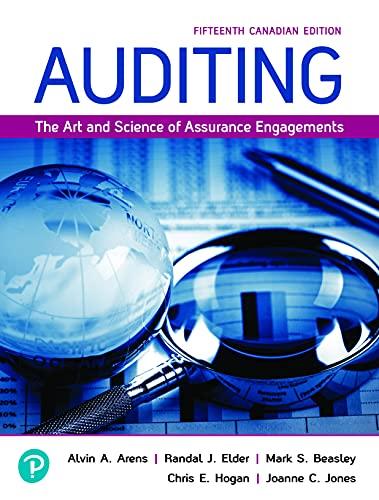iBee is a private corporation located in Punkeydoodles Corners, Ontario, that owns and maintains a large honeybee
Question:
iBee is a private corporation located in Punkeydoodles Corners, Ontario, that owns and maintains a large honeybee colony. Tom Doodles established the company as a small hobby business in 1977. Over time, Tom’s great-tasting and high-quality honey grew into a large business. In 2008, Tom incorporated iBee and split the company’s share ownership with his two children, Emilia and Mark. Following incorporation, Emilia and Mark each held] 33.33 percent of iBee shares. Tom was always the sole decision maker at iBee, overseeing all production and administrative matters. He taught Emilia and Mark everything he knows about good beekeeping practices and honey production. During a family vacation to Iceland in 2010, Tom noticed the potential market that the country presented for his honey. The following year, Tom signed a contract with an Icelandic honey distributor named Hnit. The opening of the Icelandic market caused an increased demand for iBee’s honey. Icelanders strongly prefer iBee’s honey over other brands and will pay a premium price for it because iBee’s honey always comes in a liquid form and it has a high nutritional value. When honey is stored at low temperatures for long enough, it will crystallize (change from a liquid to a solid). Crystallized honey can be changed back to its liquid form by heating it at a high temperature, but this process significantly reduces its nutritional value. As a result, honey processed by this method is priced at 50–60 percent less than untreated liquid honey. It is now November 25, 2020, and you are the senior auditor at Accounting-iS-fuN LLP, in charge of the iBee financial statement audit for the November 30, 2020, yearend. Following are the highlights from the iBee engagement team meeting related to the inventory and distribution cycle. Renewal of Hnit Contract On August 1, 2020, iBee’s Icelandic distributor, Hnit, refused to renew its distribution contract unless it included the following clause: “Hnit reserves the right to return to iBee all honey inventory that has crystallized during transportation or storage within six months of receipt. Hnit is not responsible for any shipping or storage costs of honey that has crystallized on its premises.” After some discussion, Emilia and Mark agreed to include the clause in iBee’s agreement with Hnit, which was signed and went into effect on August 15, 2020. Emilia instructed Lidia, the controller, to journalize (process an accounting entry) all honey sales to Iceland at the time customers placed their preorders at the beginning of the year. As iBee always prioritized the Icelandic orders, and all honey sales were shipped and delivered prior to year-end, Emilia believed this method would not impact the financial statements and could be used as a tool to forecast honey demand for the year. Shipment Accident Due to a phenomenon called hygroscopy, honey will absorb moisture directly from the air, including any pollutants and odours contained in it. Thus, honey must be carefully packaged to protect it from dust, vehicle exhaust fumes, strong food odours, and other pollutants. Polluted honey is usually unfit for consumption and should be discarded. On July 1, 2020, due to a shortage of proper transport containers, Mark resorted to transporting a large quantity of honey from the beehives to the storage warehouse in unsealed, inadequate containers. A highway accident caused a delay and the truck carrying the shipment was forced to idle for an extended period. Upon testing at iBee’s processing facility, it was determined that the honey had indeed absorbed a large quantity of exhaust fumes and was polluted. Mark could not discard the polluted honey because 2020 was already a low production year and doing so could delay or even cancel the fulfillment of Icelandic orders. To overcome this challenge, Mark wants to gamble and ship the polluted honey mixed in with a shipment of “clean” honey with the hope that it will not be tested by the Icelandic Food Safety Agency (IFSA). Mark plans to include the polluted honey with the last shipment to Iceland scheduled for December 29, 2020. The IFSA has very strict inspection protocols for all food imports, testing on a sample basis 5–10 percent of all shipments entering the country. IFSA inspection protocols require testing honey for pollutants and ensuring that its actual nutritional value matches the facts indicated on the label.
REQUIRED
a. Identify and explain which case facts (risks) would impact your assessment of the inherent risk for the inventory balance.
b. Identify and explain which case facts (risks) would impact your assessment of control risk for inventory.
c. Explain which specific assertions would most likely have a high risk of misstatement based upon your inherent risk and control risk assessment.
Step by Step Answer:

Auditing The Art And Science Of Assurance Engagements
ISBN: 9780136692089
15th Canadian Edition
Authors: Alvin A. Arens, Randal J. Elder, Mark S. Beasley, Chris E. Hogan, Joanne C. Jones





